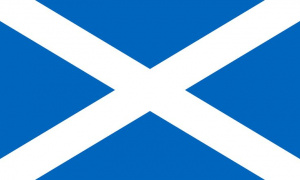Language/Scottish-gaelic/Grammar/Plurals
Hi Scottish Gaelic learners! 😊
In this lesson, we will explore the plural forms in Scottish Gaelic. Plural forms are essential to learn, as they are a crucial element in the language. To get the most out of this lesson, it is recommended that you have a basic understanding of the Gaelic language. If you haven't already, be sure to check out our Grammar section on the Scottish Gaelic language.
To navigate better to the content of this lesson, you can use the table of contents below:
Take a moment to explore these relevant pages as you conclude this lesson: Personal pronouns, Negation, Conditional Mood & How to Use Have.
Why are plurals important in Scottish Gaelic?[edit | edit source]
As in many languages, plurals are used in Scottish Gaelic to denote more than one of something. Without the use of plurals, it would be impossible to express such ideas as multiples of something. In Scottish Gaelic, plurals are most often constructed through the addition of suffixes, and sometimes the modification of the word itself. There are also some exceptional forms are relevant only for those of you with a high level of Scottish Gaelic.
Formation of Plurals in Scottish Gaelic[edit | edit source]
To form the plurals in Scottish Gaelic, you will usually add a suffix to the word. The suffix is "-an", generally pronounced with the last syllable as "-un". However, before appending "-an", sometimes you may need to change a few letters depending on the word’s final consonant. Below are some standard plural suffix changes based on word structure and ending.
- Words ending in -a
| Scottish Gaelic | Pronunciation | English | |||
|---|---|---|---|---|---|
| atha (brother) | ['a.ə] | brothers | cluicha (bell) | ['kl̪u.çə] | bells |
- Words ending in -e
| Scottish Gaelic | Pronunciation | English | |||
|---|---|---|---|---|---|
| sgìre (parish) | ['s̪kʲiːɾʲə] | parishes | talamh (earth) | ['t̪ʰaɫ̪əv] | earths |
- Words ending in -òir
| Scottish Gaelic | Pronunciation | English | |||
|---|---|---|---|---|---|
| fòram (forum) | ['foɾəm] | forums | sònraichte (unique) | ['s̪õɾəxtʲə] | uniques |
- Words ending in -ag or -ig
| Scottish Gaelic | Pronunciation | English | |||
|---|---|---|---|---|---|
| cac (excrement) | [kʰak] | excrements | bileag (leaflet) | ['pilʲak] | leaflets |
Also, the plurals of some words can be exceptionally unpredictable and must be memorized. For example, in the case of the word for "foot": it becomes daoine, while the singular would be aon nathairm.
Exceptions[edit | edit source]
As in all languages, there are exceptions to the rule. In Scottish Gaelic, there are two primary exceptions to the rules covered above and some words fall into the class of exceptions which require a change in the word stem before adding the plural suffix "-an."
- 1) Exceptional plurals
Some Gaelic nouns have exceptional plurals that don't follow the addition of the typical plural suffix "-an." Similar to English language with words such as 'child' becomes 'children,' in Gaelic, plural forms for some words change completely. Here are some examples of the exceptional plurals in the Scottish Gaelic language:
| Scottish Gaelic | Pronunciation | English | |||||||||
|---|---|---|---|---|---|---|---|---|---|---|---|
| duine (person) | ['t̪ʰujnə] | people | cas (foot) | [kas] | feet | muc (pig) | [muk] | pigs | bo (cow) | [bo] | cows |
- 2) Internal Change
In standard Scottish Gaelic (Gàidhlig), some words change entirely when the plural form is required. These types of words will require a change in the word stem before the usual pluralizing suffix "-an" is added. Here are some examples of these types of plurals.
| Scottish Gaelic | Pronunciation | English | |||||||||
|---|---|---|---|---|---|---|---|---|---|---|---|
| taigh (house) | [t̪ʰɤjɪ] | houses | caileag (girl) | [kʰalʲek] | girls | madainn (morning) | [madənʲ] | mornings | lanntair (lamp) | [ɫ̪ãntʲəɾʲ] | lamps |
Examples in Dialogue[edit | edit source]
Let's see plurals in action with some examples.
- Person 1: Seall, tha mi ag iarraidh taigh ùr. (Look, I want a new house)
- Person 2: 'S dòcha gu bheil daoine a' dol gad cheannach (Maybe people are buying them.)
- Person 1: Chan eil mi cinnteach (I'm not sure).
- Person 2: Tha mi cinnteach. Tha na taighean seo tuigsinneach. (I am sure. These houses are affordable.)
Practice and Reinforcement[edit | edit source]
To solidify your understanding of plurals in Scottish Gaelic, a great way to practice is by creating simple sentences with plurals. For example:
- Tha mi ag iarraidh leabhraichean ùra. (I want new books)
- Tha sinn ag ithe measgaichte eadaichte. (We eat mixed berries)
- Tha a' ghille a' bruidhinn ri mòran daoine. (The boy talks to many people.)
Be creative!
To improve your Scottish Gaelic Grammar, you can also use the Polyglot Club website. Find native speakers and ask them any questions!
Sources[edit | edit source]
Other Lessons[edit | edit source]
- How to Use Have
- Questions
- Conditional Mood
- Adjectives
- Pronouns
- Negation
- Personal pronouns
- Give your Opinion
- Future Tense

